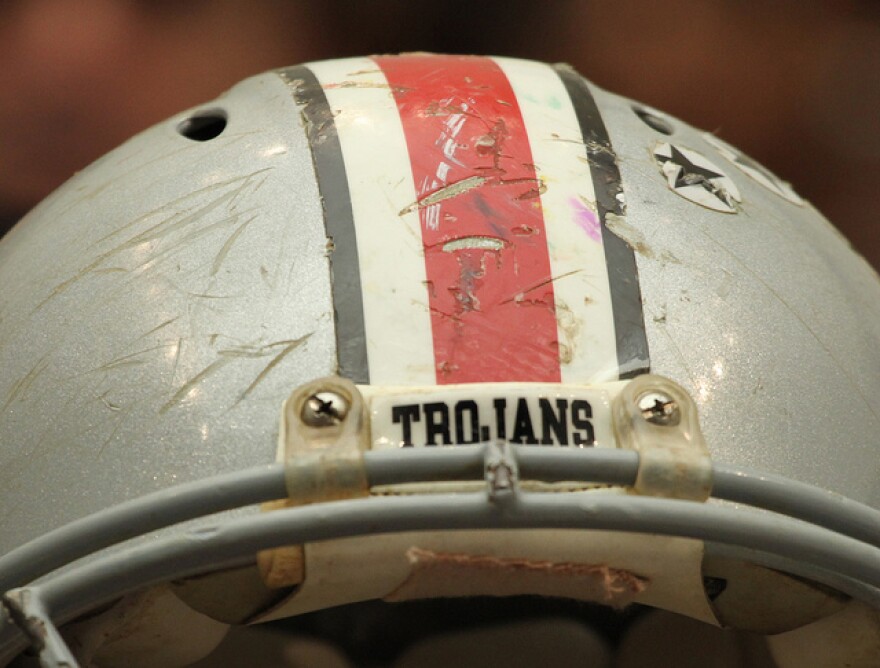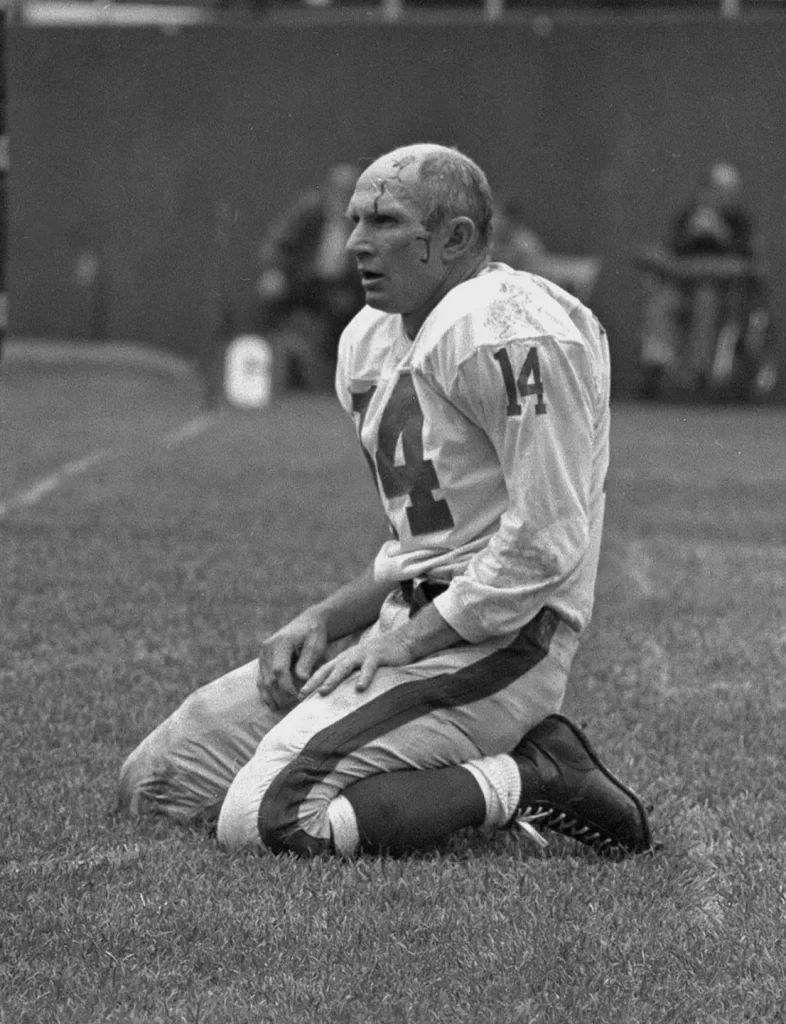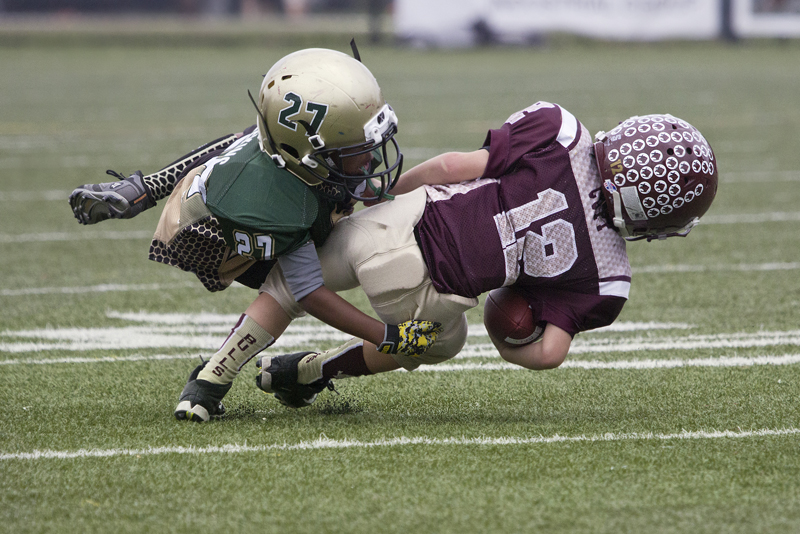
Lots of well-deserved buzz surrounding this timely and important story by Dave Sheinin (read via the Washington Post here and more from the series here and here). This entire triumph of reporting is worth reading –if you’re a football fan or not– and while it’s difficult to deny awareness around the undeniable dangers of football has expanded considerably during the last decade, it’s still a very complicated and divisive issue, for all the obvious reasons. For one thing, Football is arguably the single religion a majority of Americans are irrevocably faithful to. Second, there’s a lot of money involved (like, a lot).
Some key takeaways from these stories are quoted below:
Now, there was another reason for kids to stay away from football. As he prowled the hallways of school in search of players, Pearce, who also teaches at Milton-Union, started to hear about parents refusing to allow their sons to play. In two cases, he said, the moms were emergency room nurses who had seen firsthand the effects of concussions.
Years ago, Pearce might have accepted that stance. But now, he said, football is “safer than ever” due to advances in technology, tackling technique, coaching and officiating.
“The way we teach tackling now, the way officials enforce the rules, the technology in the helmets — everything is focused on safety,” Pearce said. “The concussion protocols — if a kid comes off the field and says his head hurts, boom, the trainer is all over him, and he’s probably out at least a week.”
and
Aside from money, one other factor separates suburban football from the brand played in Dayton: the feeder system for young athletes. In the suburbs, “youth football” often means the kind that doesn’t require pads. It is part of the new paradigm for youth football in America: Where there is money, there is flag football.
Over the past 15 years or so, flag football has exploded across Ohio, with Flag Football Fanatics, a Columbus-based organization, becoming the major player in the Dayton area’s youth football scene. It is a rise being seen all across the country, with flag surging in popularity since the onset of football’s CTE crisis, which some researchers believe may be more acute among those who started playing tackle football as kids.
As I say, the entire series is crucial reading, and if this causes you to pony up for a subscription to the Washington Post, support journalism and feel good about doing so.

I remember reading a disturbing piece about the science behind sports-related concussions (and how, a little more than 10-15 years ago, the NFL was –predictably– doing everything it could to deny, cover up, and obfuscate), and saw many more good non-fiction pieces as the evidence of cause and effect (including hockey, etc.) became increasingly impossible to ignore. But a couple of years ago I read a devastating piece (I think in Esquire?) about a teenager dealing with profound concussion symptoms, and it was heartbreaking to think about non-retired, non-rich athletes having their lives impacted, or even ruined.
And what do you do when the “bad guy” is sports, something so many love, and everyone who plays does so with joy and free will? It got me to thinking, which led to this short story “That’s Why God Made Men.” I’ll resist pointing out the irony that it went live the week of a Super Bowl, but shout out sincere gratitude to Porter House Review for publishing it.
(This story is included in my collection This Kind of Man, forthcoming in spring 2024 from Unsolicited Press. Much more about all this, another time, but “That’s Why God Made Men” is of a piece with a handful of other stories that look at some contemporary issues surrounding masculinity that, in my humble estimation, are at once well-known yet not sufficiently discussed. I’ve noted that the batch of short stories I’ve written these last few years feature people and perspectives far outside my scope of lived experience, with characters (older widowed men, mothers, younger boys) I can’t claim to represent with authority. But they are informed by a repeated pattern and habit of reading, writing, and observing. And not just eyewitness appraisals of day-to-day life, but an active and ongoing dive into what’s happening—on the surface and beneath the façade; so that politics and history are inseparable from motivation. And there’s a common thread, which some of us were taught to find and deconstruct during grad school, that might better illustrate how people in different times or places have common (and in some instances, very different) desires or fears or obsessions.)

An excerpt from the story, below:
Football was good for our family, like I said. All I ask is that you be the best player on the field, Jerry liked to joke. But it was funny because J. J. always was the best player, and it seemed like all his teams could never lose. Even we he got to high school, when they didn’t win, each week it seemed like J. J. broke another record or did something else to get in the paper or cause a recruiter to call. Those were the greatest days, for all of us.
Even the concussions didn’t seem so serious. We called those headaches when I was a kid, Jerry would say. When the team wouldn’t let him suit up for a game one time, on account of the new school policy, Jerry about lost his mind. It’s just as well your grandfather isn’t here, he said. He would have stood on the fifty-yard line cussing at everyone, and they’d have to carry him away by his boots. J. J., just like his father, smiling and shaking his head, never allowing anyone to see any weakness.
Pain is just fear leaving the body — that’s another one of Jerry’s favorites. I know he would repeat things like that, especially when he coached Little League, to keep the kids motivated. Even I’d admit a lot of parents want to pretend they can keep anything bad from ever happening. Life is also a game, but you don’t get to wear a helmet, Jerry says.
The thing of it is, all this happened with his helmet on. Some people say these things keep happening because of the helmets. They say boys are so big and athletic these days, it would be safer without helmets and pads. But even Jerry talks sometimes about his father, a quarterback, and how he’d complain about feeling dizzy after games. Or that there was never enough aspirin for the way his head would hurt, like a faucet he couldn’t turn off. When he’s drinking or around his friends, Jerry will say stuff like I got my bell rung so much I thought I was a church. Or how he and the other kids would throw up on the sidelines. Playing through the pain is what separates the big boys from the little bitches, he always says. That’s what the men in our family do, he says. If my father was here, you could ask him.
You can read the rest of the story, here.
